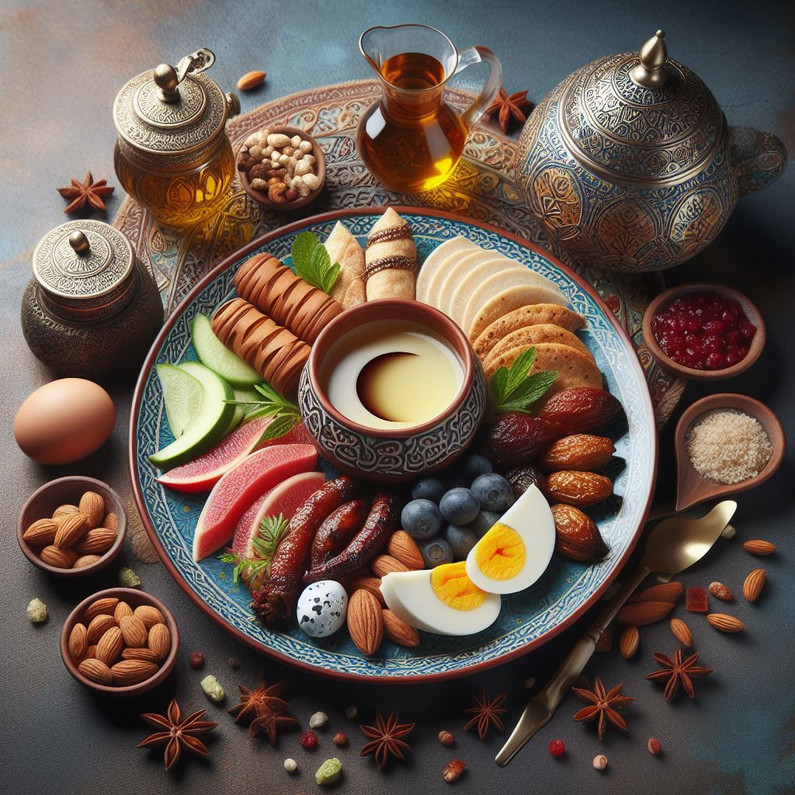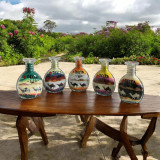Exploring Ramadan Delicacies: A Culinary Journey Through
Exploring Ramadan Delicacies: A Culinary Journey Through Dubai's Radiant Foods Introduction:
Ramadan, the holiest month in the Islamic calendar, is not just a time of fasting and prayer but also a period of culinary delights and communal gatherings. In Dubai, a city known for its rich cultural tapestry and diverse culinary scene, Ramadan takes on a special significance as families and communities come together to break their fast with an array of traditional and contemporary dishes. In this article, we'll delve into the radiational foods of Ramadan in Dubai, exploring the flavors, aromas, and cultural significance behind these delectable delights.
1. Iftar Delights:
Iftar, the meal to break the day's fast at sunset, is a moment of celebration and togetherness. In Dubai, the Iftar table is adorned with a variety of dishes ranging from traditional favorites to modern interpretations. Staple dishes include dates, which are traditionally eaten to break the fast, as well as savory treats like samosas, fatayer (stuffed pastries), and falafel. These appetizers are often accompanied by refreshing beverages such as Jallab (a drink made from dates, grape molasses, and rose water) or Amar al-Din (apricot juice).
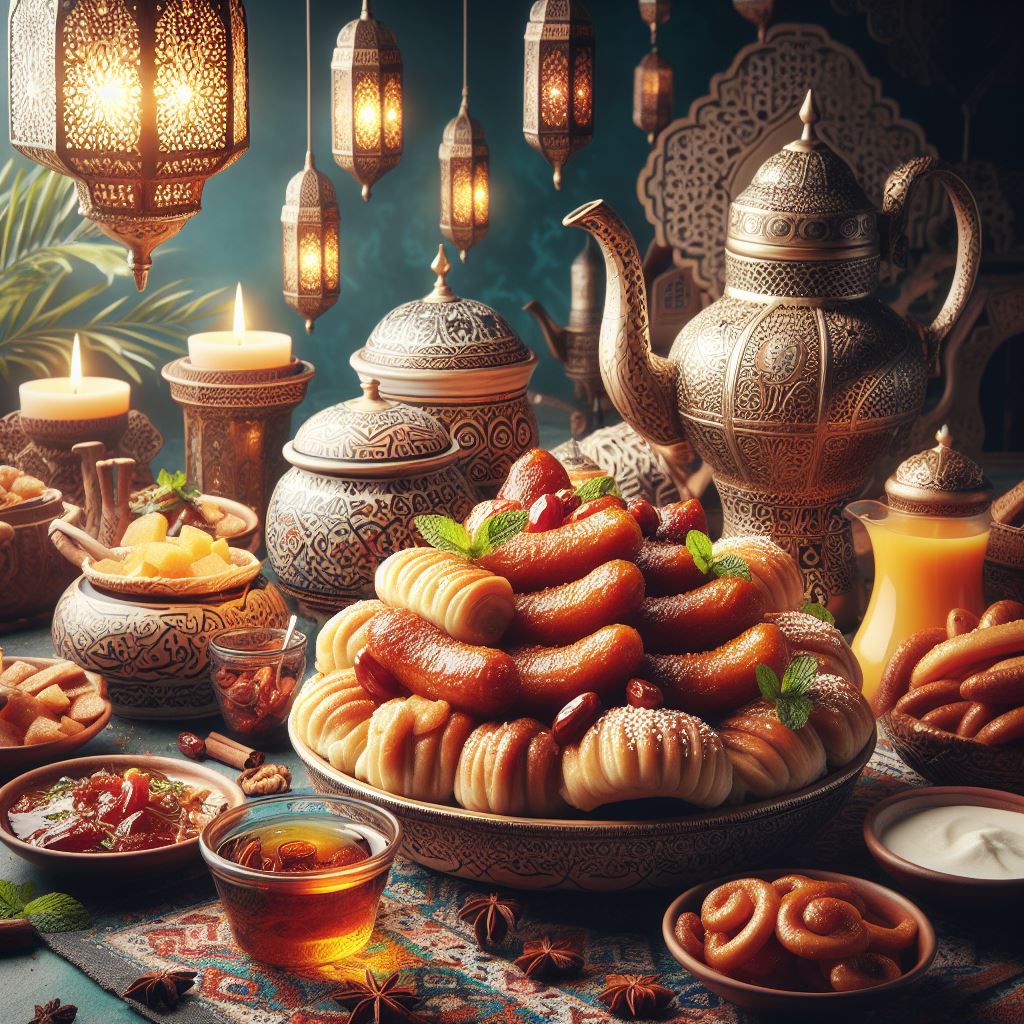
2. Traditional Main Courses:
Following the appetizers, the main course during Ramadan in Dubai typically consists of hearty and wholesome dishes that provide sustenance after a day of fasting. One such dish is Harees, a porridge-like dish made from wheat and meat, slow-cooked to perfection. Another favorite is Machboos, a fragrant rice dish cooked with meat (usually chicken or lamb) and an aromatic blend of spices. These dishes not only satisfy hunger but also reflect the culinary heritage of the region.
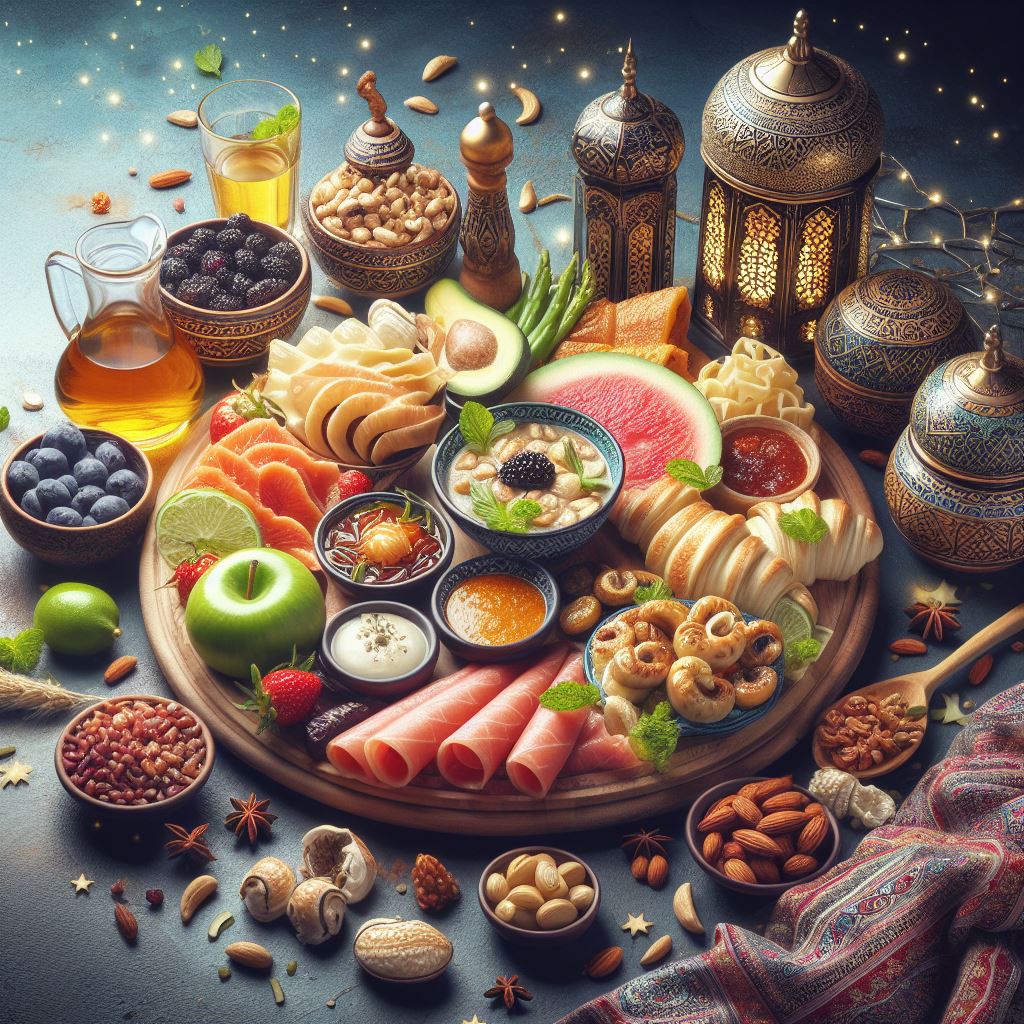
3. Sweet Treats:
No Ramadan feast is complete without indulging in sweet treats, and Dubai offers a tempting array of desserts to satisfy any sweet tooth. One iconic dessert is Umm Ali, a creamy bread pudding infused with flavors of rose water, nuts, and raisins. Another popular choice is Luqaimat, deep-fried dumplings drizzled with date syrup or honey, providing a perfect balance of sweetness and crunch. These desserts are often enjoyed with a cup of traditional Arabic coffee or tea, adding to the convivial atmosphere of Ramadan gatherings.
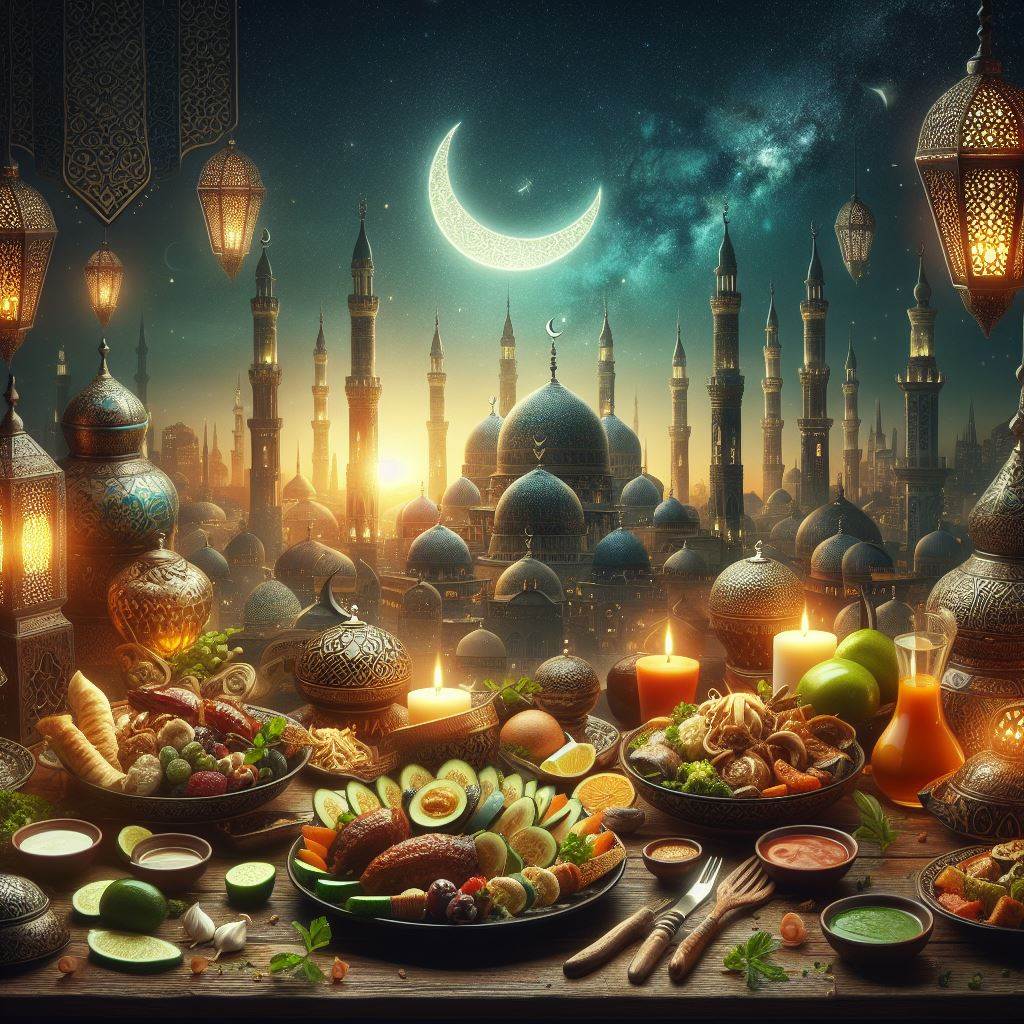
4. Modern Twists:
In recent years, Dubai's culinary scene has witnessed a fusion of traditional flavors with modern culinary techniques, giving rise to innovative dishes that pay homage to tradition while offering a contemporary twist. From gourmet Iftar buffets at luxury hotels to Ramadan-inspired menus at trendy eateries, Dubai offers a plethora of dining options to suit every palate. Diners can savor dishes like lamb ouzi sliders, pistachio kunafa cheesecake, or saffron-infused ice cream, showcasing the creativity and culinary prowess of Dubai's chefs.
Conclusion:
Ramadan in Dubai is not only a time of spiritual reflection and devotion but also a celebration of food, family, and community. The radiational foods of Ramadan reflect the rich cultural heritage of the region while embracing modern culinary trends. Whether enjoying a traditional home-cooked meal or indulging in gourmet delights at a luxury restaurant, the spirit of Ramadan permeates every aspect of dining in Dubai, creating lasting memories and fostering a sense of unity among its residents and visitors alike.
Recent Posts
-
Top 5 Cultural Gifts to Buy in Dubai (That Actually Mean Something)
*Intro:* If you’re visiting Dubai and want to bring home more than just a magnet or perfume bo …11th Jul 2025 -
The Best Souvenir Shop in the UAE? Why CraftiHouse Stands Out from the Rest
The Best Souvenir Shop in the UAE? Why CraftiHouse Stands Out from the Rest Souvenir shopping in the …10th Jul 2025 -
Why CraftiHouse Is the Best Destination for Authentic Sand Bottle Art in the UAE
Why CraftiHouse Is the Best Destination for Authentic Sand Bottle Art in the UAE When you think of …10th Jul 2025

